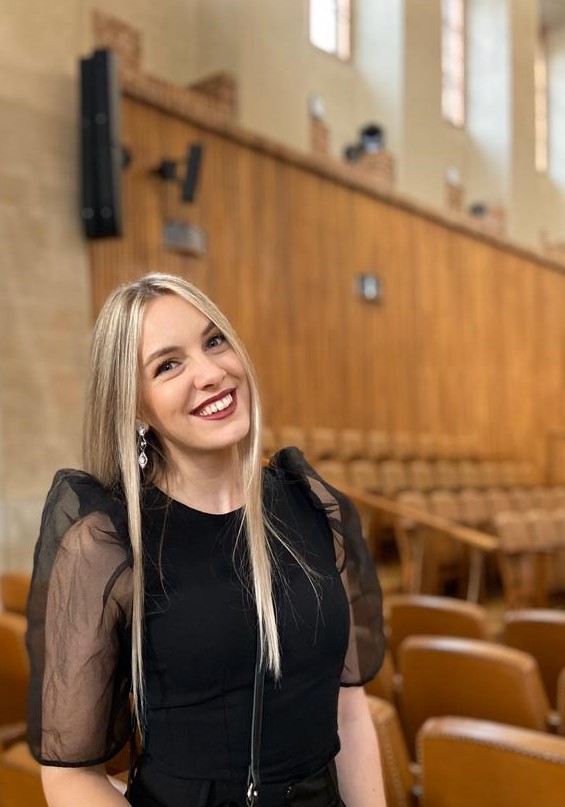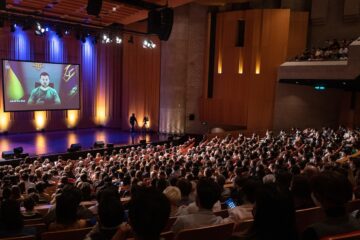Writing in June 2020…

More than three months have passed since I returned from the Netherlands to my home country, Montenegro. Given the cross-institutional structure of my master’s program, I was initially supposed to spend one semester at Leiden University. Although still enrolled in the program, the nature of being an Erasmus student – studying in the international environment, surrounded by people from all around the world – have changed a lot since the outbreak of COVID-19. Coronavirus has not only changed the way we used to see the world, but it also changed our priorities, lifestyles, and most importantly, in a way, it has also changed me.
I still remember the last day, 13 March 2020, at Leiden University and the last class we had. At that point, the first block of the semester had come to an end and my biggest concern was the Economics exam we were due to take. On the very same day, the Dutch Government in response to the outbreak of coronavirus, decided to adopt restrictions on movement and public gatherings. One of the first casualties of the government induced closures were educational institutions. The government mandated that students were to work from home wherever possible. This was exactly the point at which all of our fears started to shift to consider that what we were experiencing was something bigger, something unknown, something that was filled with uncertainty.
A few days later, the University announced that all degree programs would move to online format until the end of the academic year. This only increased my own uncertainty on what I should do: leave the country as soon as possible or to stay and pretend to live a normal life?; repatriate to join friends and family or to take the risk of being alone in a foreign country which majority of your classmates had decided to leave?; act as a responsible citizen and stay where you are or to leave and potentially spread the virus elsewhere?
I believe these were the doubts that the majority of Erasmus students faced, and looking for the right answer was a herculean task. As the number of infected cases increased, so to did were stricter measures imposed by the Dutch government. People were advised not to leave their homes so naturally I was spending my days at home, alone in the small studio which was full of pressure, tensions and negative energy. This environment made it very difficult study and it seemed as though in an instant that my daily routine had diminished with no clear prospect of returning.
At the same time, the situation in relation to COVID-19 in Montenegro was far better, largely due to the strict measures that were adopted very early to prevent the spread of the virus The government had, at the time, zero recorded cases and Montenegro remained the last Corona-free country in Europe. In my attempts to figure out whether I should I stay or go, the Montenegrin government ended up being my saving grace, essentially making the decision for me. The Montenegrin government announced that they would organize a repatriation flight for its citizens. So on 22 March when I had the last opportunity to leave, I decided to take it. It turned out to be the right decision.
Although upon returning to Montenegro I had to quarantine for 28 days (a far lengthier time period than was imposed by most other countries), my concerns largely subsided and I could concentrate on getting on with my studies. More importantly, I had some time to focus on myself and my mental health. In hindsight, the ten days spent in the Netherlands before returning to Montenegro probably marked one of the most stressful periods in my life. I had never experienced this grain doubts, fears, and mental ups and downs. One huge positive is I could not be happier that I finally able to be with my family again. Spending time with family should never be taken for granted, especially in difficult times. I have been able work on myself in a new way as a result of this experience through trying new coping mechanisms. In this sense, I am grateful that coronavirus pandemic has reminded me to appreciate the smaller things in life.
On 24 May 2020, some three months since I returned to Montenegro, the government announced that my country is officially the first corona-free country in Europe, following a miserly 324 recorded cases. Everything had started to get back to normal and there were some positive prospects for the near-complete reopening of Montenegro. Indeed, Montenegro is heavily dependent on the tourism sector and this has been very much threatened by the global lockdown. Montenegro was preparing to receive its first tourists, but the joy didn’t last for long as the number of infected persons crept up again. One of the main reasons for this was the complacent attitude of citizens thinking that it was all over when in fact it was not. It certainly seems as thought this is a phenomena we will be dealing with for some time to come. In my eyes we have only one option– to be as much responsible as we could ever be, to try to adapt to the new way of living, to maintain the physical distancing and more importantly, to embrace the emotional lessons we have learnt during this crisis.

